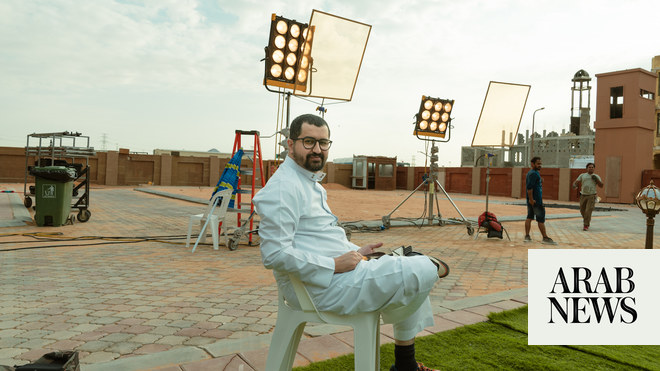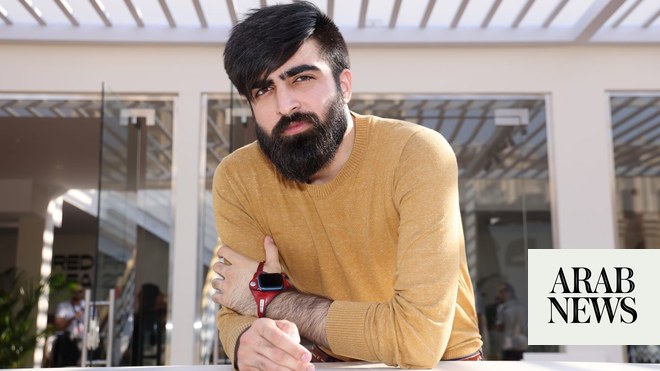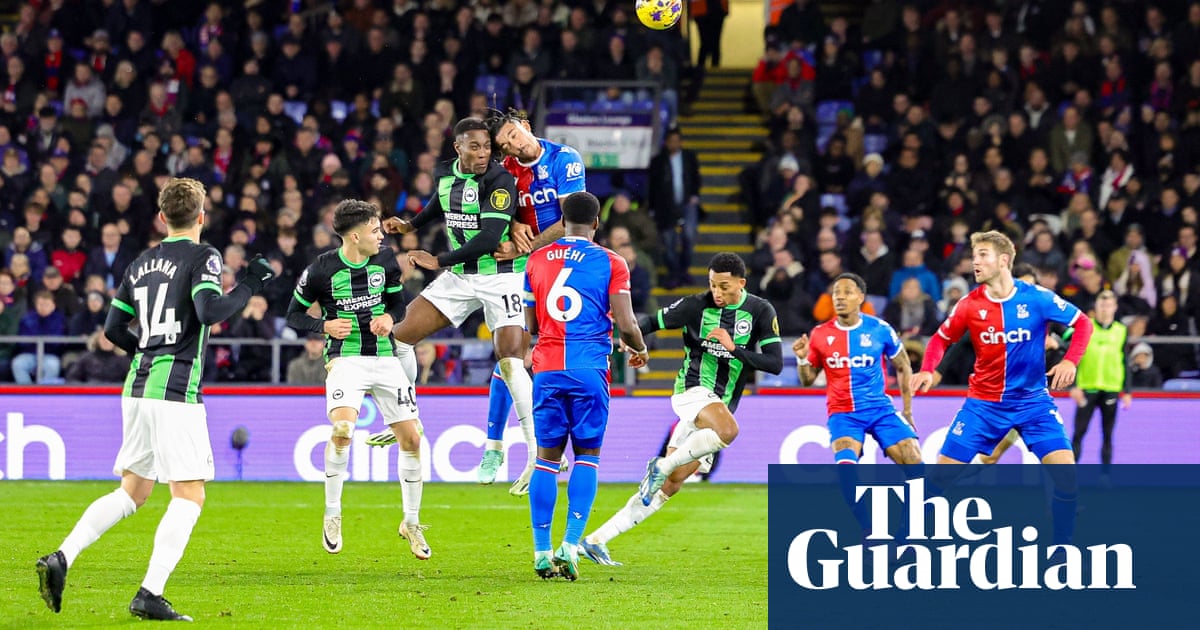
‘The limitations ignited my creativity,’ says Malik Nejer
DUBAI: Few in the Saudi entertainment industry know the view from the top quite as well as visionary filmmaker Malik Nejer. His beloved animated series “Masameer County” is more popular than ever, more than a decade removed from its humble YouTube beginnings, having conquered both the local box office and global streaming. But what do you do once you’ve reached the peak? For Nejer, the answer was simple: find another.
For the latest updates, follow us on Instagram @arabnews.lifestyle
With the new Netflix film “Head to Head,” Nejer has ventured into uncharted territory for him, directing his first live-action project from a script by his long-time collaborator and Myrcott Animation Studio co-founder Abdulaziz Almuzaini. While the bold aesthetics and madcap sensibility will feel familiar to his legion of fans, the move out of the animated world was a difficult test for the 38-year-old storyteller, and one that will forever change his approach.
“It actually gave me huge respect for my colleagues who are doing live-action (films), because the logistics of this thing are a nightmare. In animation, it’s only a question of time and money. But with live-action, you can’t just throw money at something and expect it to get better. There’s so much that can go wrong,” Nejer tells Arab News.
“But rather than deter me, those limitations ignited my creativity. I became fascinated by all the problems that needed to be solved, and that struggle is going to inform my work going forward, both animated and live-action. I’m going to put limitations (on it) and see what happens,” he continues.
“Head to Head”, (Ras B Ras in Arabic), is set in the fictional Saudi city of Bathaika. If Riyadh is the country’s New York, then this is its Gotham City, a dark fantasy conceived by Almuzaini that allowed Nejer’s creativity to run wild.
“This was a work of stunning imagination, from top to bottom. It was a fully realized world,” says star Adel Radwan, who plays one of three bumbling heroes attempting to navigate the lawless city. “The art direction, the costumes, the colors, everything. Even for us in the cast, we were dazzled by everything around us while on set. Every single detail, from the names of the street signs and shops to the costumes of the shoppers, was something special.”
The challenge of creating the world was an unexpected one for Nejer. Originally, the film was supposed to mark Almuzaini’s first major project independent from Nejer with his new production company Sirb. When he got the call, he was initially resistant, eventually convinced because he knew as well as the producers did that no one understood Almuzaini’s unique vision quite like he did.
“This film found me — I didn’t go searching for it,” he says. “But I said to myself, ‘Even though this is not my story, I’m going to do my best to direct it and hopefully put something of myself in it, too. My team needs me, and I can’t let them down.’”
To make the transition less daunting, Nejer’s first move was to create the entire film in the medium he’s most familiar with, then use that as the template for what he created on set.
“We actually animated the entire film, an hour-and-a-half of it. That was hugely helpful for me, because we were able to test everything from a storytelling perspective, and then throw it all in the bin and start from scratch knowing exactly what we were going for,” says Nejer.
The director continued to lean on his artistic skills throughout production, with his strong visual sense helping to create an instantly recognizable look for each of the lead characters.
“What really helped us make these characters so iconic is Malik’s drawing talent,” says Radwan. “Even though he had already imagined how the characters would look in general, each one of us had a whole day to try every possible outfit and look. Malik would then enter and go, ‘No, not that one.’ Nothing worked right until we tried what he had drawn. Each time we finally did, that was the moment when we would say, ‘This is the one.’”
For Radwan and fellow stars Abdulaziz Alshehri and Ziyad Alamri, Nejer’s insightful directing style helped them unlock aspects of their characters that hadn’t been clear just from reading the script.
“Malik helped us by comparing each character to an animal, and that helped us a lot in figuring them out,” says Radwan.
“We’d practice it during rehearsal, and it gave us so much more confidence. I was a lion,” adds Alshehri.
“I was a porcupine. Adel was a panda!” says Alamri with a laugh.
As joyful as the experience was for Nejer, who reveled in the absurdity that Bathaika demanded from him, he sees the film as a fun exercise rather than an exemplar of the work he will make in the future. At 38, Nejer is interested in making films that are more mature than the material that excited him as a young man. He sees himself moving into the world of drama next.
“I think my career will end up having a similar trajectory to filmmakers like Adam McKay and Todd Phillips, who spent years making movies like ‘Step Brothers’ and ‘The Hangover’ respectively before moving into award-winning projects like ‘The Big Short’ and ‘Joker’ as they got older,” says Nejer.
Those examples, however, do not paint the perfect image of what he aspires to. Nejer does not lust after Oscar gold, and has no real aspirations in the arthouse world either. What he wants, instead, is to tell stories that are more personal to him and the experiences he had growing up outside of Riyadh.
“This is easier said than done, of course. The market has an appetite for films aimed at big box office, and there’s always a place for small festival films, but pure drama? That’s a tough ask at the moment. Still, that’s where my heart is. I grew up in a region ridden with trauma, and there’s a lot of things I would like to process through my work,” says Nejer.
“I think I’m at a stage in my life where I’ve had enough commercial success to feel good about myself, and I don’t have aspirations to be a world-renowned director. I’m very lucky to be in this position and have so many people supporting me, and I want to use that to tell personal stories. Maybe I try that for five years and then I go back to pure comedy, but right now I want to experiment on a deeper level. There’s so much buried deep in the heart of Saudi Arabia that I need to explore.”












